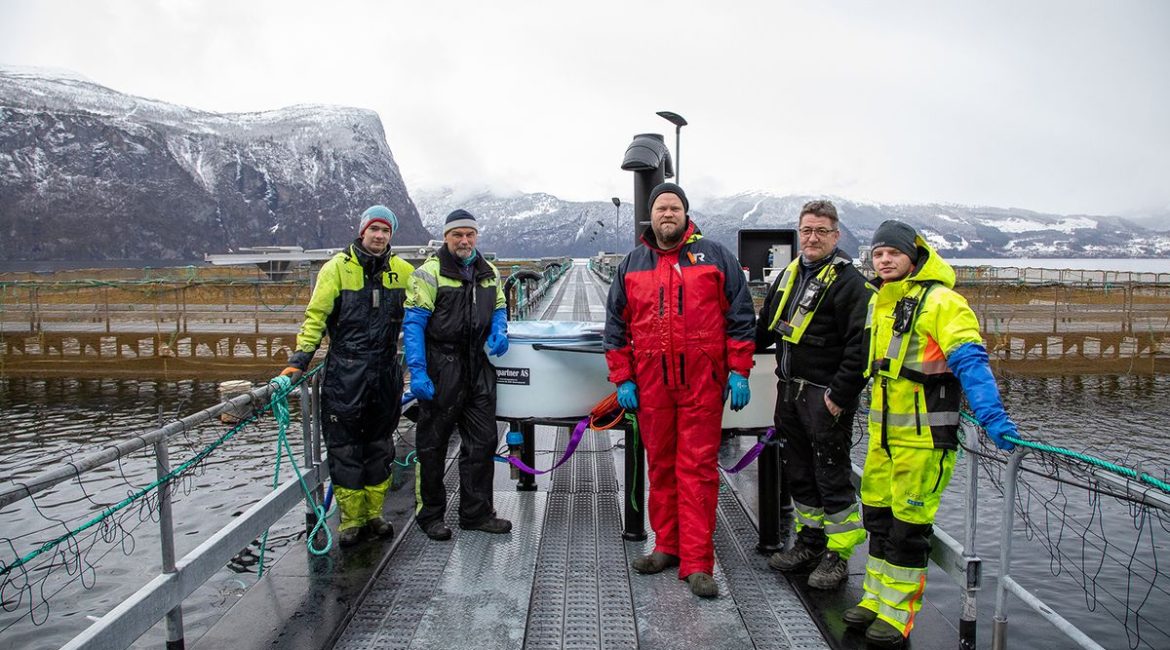Hofseth Aqua and Cargill are currently carrying out a comprehensive project with several field trials to achieve a more robust fish and better welfare. Fascinating things are now being observed in some of the cages.
The field trials are part of a large research and development (R&D) project by Hofseth Aqua and Cargill that has received four R&D permits to test full-scale nutritional strategies to make rainbow trout more robust.

“Our farm technicians have a long list of observations they need to register. On both shifts, they observe clear differences in the fish in the cages where the trout fed on a different feed than in the other cages. The fish has less wear-and-tear damage, is more robust, eats more evenly, and recovers faster after lice treatment. We can see this with the naked eye. It is exciting in itself, and we are very excited to see the full picture when the experiments are over and we get documented results,” said site manager Olai Roger Nakken in Hofset Aqua.
About 95 percent of Norwegian fish farmers produce salmon. Therefore, a lot more research is conducted on salmon than on trout, and in that sense this project is groundbreaking. It is very important to get data on nutrition that can help make the fish more robust to better tackle today’s production system.
Blinded trial
The field trial is structured as a blinded test where two feed variants are tested against each other, and the breeders at Hofseth do not know which feed is in which cages. The feed is only identified by letter codes.

“If we had said that we expected better fish welfare by using a specific feed, those involved in the trial would more likely look for signs that confirm such results. The expectations can affect the results, especially since a large part of the database in these trials is to score on various welfare parameters,” explained Sara Straumsnes, the trial coordinator and Scientist Trial Application for from Cargill Innovation Center in Dirdal.
Proper nutrition used to better fish welfare
The R&D project aims to carry out solid research in the field that can contribute to better fish welfare under different production conditions, and especially in stressful situations such as delousing treatments.
“The main focus in this project is not on increased growth, but increased welfare and health. When the fish undergoes delousing treatments, it becomes stressed and has a different nutritional need than in a normal situation. With proper nutrition, the fish thrives better and grow better. Uncovering the trout’s nutritional needs under current production conditions is important to improve the welfare,” said Straumsnes.
See the benefits
Conducting good research in the field is both important and demanding because this is where the fish face real many challenges and disturbances. It is often difficult to draw clear conclusions, and one ends up only registering a trend.
“Hofseth Aqua is a production company but has a very positive mindset about researching while production is ongoing, even though it is labor-intensive. Those who work out on the pens twenty-four-seven, see the value and the importance of improving welfare,” said Straumsnes.
To experiment in such a good way that the results can be observed in the cages without having to wait for the final data is a major motivating factor.
“Such experiments also help us become more observant of the fish. We see the big picture better. The project creates awareness as well as good dialogue both before and after the trials. We become better growers by doing this, and therefore I think we will continue with frequent welfare scores even after the project is completed,” concluded Nakken.

